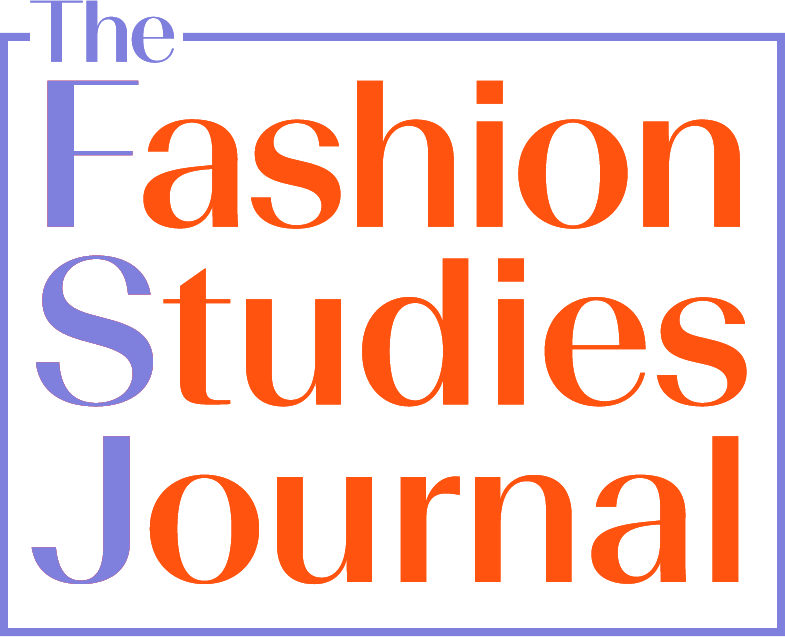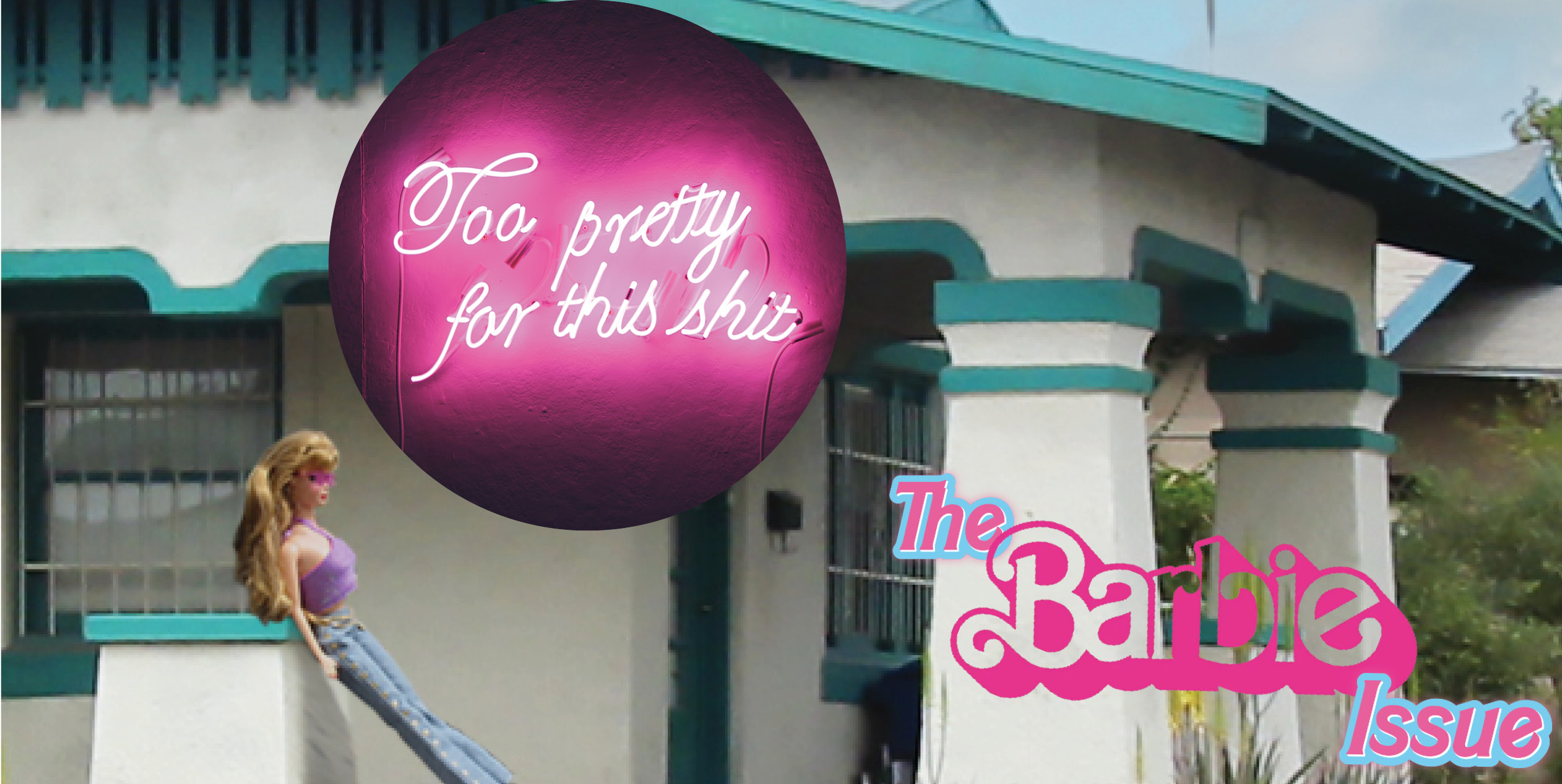TABLE OF CONTENTS
- Letter from the Editor
By Laura Snelgrove
- The Most Beautiful Girl in the World
By Brian Centrone
- Pink is a Tint of Red: How Barbie Turned Me Off Communism and Into a Fashion Historian
By Julia Petrov
- Hi Barbie! A Standpoint Analysis From Black Millennial Girls Who Aren’t in Barbie’s World
By Keira Moore, Maya Revell, and Alliyah Moore - It’s a Queer Barbie World
By Zara Korutz
- Don’t Ask Me, I’m Just a Girl: Lisa Simpson, Teen Talk Barbie, and Malibu Stacy on Feminism, Gender, and Stereotyping
By Doris Domoszlai-Lantner and Petra Egri
- Visual Vertigo
By Wonne Scrayen - How to Lose Weight with Barbie
By Emily L. Newman
- C’mon Barbie… let’s have a pool party!
By Terry Burant - Barbie Who? The Influence of Barbie on the Aesthetics and Creative Imagery of Fashion Makers
By Anna Zinola, Carlos Gago Rodriguez, and Sara Kaufman
- Black Barbie: Representation and Self-Love
By Aliyah Martinez - Barbie in Tucson
By Katya Moorman - Paradoxical Decadence: On Moschino and Motherhood
By Mary Fellios
- Billy Boy: Barbie Obsessed, Fashion Icon
By Frank New
- Cultivating Individuality: Weird Barbie Style
By Tannya Villalvazo
- She’s More Like Us Than We Think: Actually She’s Just Like Us
By Paola Di Trocchio
- Letters to Barbie
By Amelyah Roach, Sophie Ziser, Francesca Osayande, and Diana Porta
Hi, Barbie?
Well, friends. Here we are, nearly a year after the release of the Barbie movie, and 65 years after the doll debuted, still thinking about her.
Does the summer of 2023, when many of us first saw and debated the merits of Barbie, now seem like a simpler time? Sure, but if the last few years have taught us anything, it’s to get used to the sensation of multiplying crises and nostalgia for when the stakes felt lower. At this pace, how do we determine which parts of which cultural conversations to keep in the mix and which to cycle out?
We’ve made a decision, with this issue, to honor our strong reactions to Barbie – good and bad, and to the cultural figure as much as the movie – by keeping her in the mix a little longer. The humanities aren’t about hot takes, so we’re attempting to give this topic the consideration it deserves, even from where we sit in 2024.
There’s a dissonance that comes from researching, writing, and thinking about a topic so far removed from the most urgent conversations of the day. Let’s be real – this is a factor in doing fashion studies at the best of times. Our community knows why fashion history and theory are relevant to many, many topics of great importance, and we’ve all found ourselves needing to make the case to skeptics. Still, it can be a challenge to find purpose in this work when our notifications are flooded with all the horrors our research has no ability to fix.
I’m pleased to say that the writing in this issue addresses so many of the ways Barbie connects to bigger-picture questions: Zara Korutz and Frank New discuss how the doll has gotten it right (and sometimes less right) when it comes to her queer fanbase; Doris Domoszlai-Lantner and Petra Egri poke at the contradictions in her feminism; Keira Moore, Maya Revell, and Alliyah Moore, as well as Aliyah Martinez, offer their experiences as Black women consumers being sold Barbie’s version of DEI; others take up these and many more angles for investigating this complex, multitudinous figure. Barbie has represented so many different identities, from her origin in the mind of Jewish American Ruth Handler to her embodiment of a variety of other ethnic groups, sizes, and abilities. We should be examining her from as many sides, and always through the lens of liberation.
As our timelines roil with genocide, war, fear, and phobia, and we find ourselves unsure of where our voices belong, it feels important for us as an editorial group to return to a mission statement we wrote in 2021 (a simpler time… or was it??). We stated our intention to amplify marginalized voices and honest conversations, to prioritize perspectives that are equitable, feminist, queer, and actively antiracist. We remain committed to that agenda, and FSJ remains available to you, our community, as a place to come together in solidarity.
Fashion studies research isn’t going to single handedly bring peace and safety to the Middle East, or to any other region torn apart by conflict, nor will it stem the tide of global fascism, protect targeted groups from violence, repair the damages of colonialism, or reverse global warming. But when and where we can, we have to respond with the tools we have.
Thank you so much to the incredible contributors to this issue, who submitted from far and wide. Special thanks to Brian Centrone, who jumped at the chance to include his Barbie photography and ended up elevating the whole collection. Huge gratitude to Aimee Koran and Katya Moorman for the imagery that became the header above this letter. When the nonsense grinds you down, remember, you’re too pretty for this shit.
Peace,
Laura Snelgrove, Editor in Chief
 Me, admiring my DreamHouse. A simpler time.
Me, admiring my DreamHouse. A simpler time.Notes: Letter from the Editor
[1] For examples of how fashion studies research published in FSJ has previously addressed one of today’s most urgent conversations, we encourage you to revisit Roberto Filippello’s interview with the designers of Trashy Couture and Joelle Firzli’s exploration of the keffiyeh. As an editor, I am grateful for the rights that protect our contributors’ expression of their solidarity with both the Palestinian people and Jews around the world whose safety is threatened by rising antisemitism.
Issue 15 ︎︎︎
Fashion & Southeast Asia
Issue 14 ︎︎︎
Barbie
Issue 13 ︎︎︎ Fashion & Politics
Issue 13 ︎︎︎ Fashion & Politics

